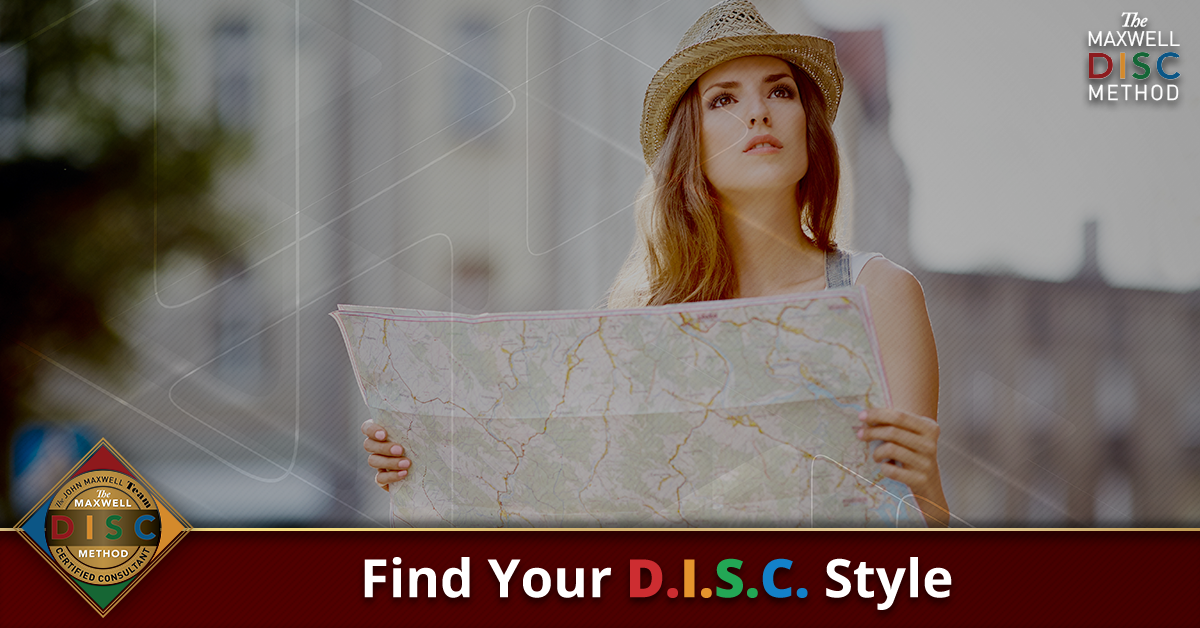The Maxwell DISC Method
The Maxwell Method of DISC Report aims to help individuals identify their personal strengths and capitalize on their talents to make them more effective individuals. In identifying one’s own and others’ innate abilities, attributes, weaknesses and fears, the report helps people communicate better and work together more effectively. The report is a result of a strategic alliance between The John Maxwell Team and the Institute of Motivational Living (IML), the publisher of the DISC Personality System. The Maxwell Method DISC Report and other Maxwell Method DISC reports use the components of the DISC Personality System and the DISC methodology. The concept of the DISC is based on William Marston’s theories, which postulate that people basically possess one or more of four different personality styles:
• Dominance – this describes someone who is direct, decisive, a problem-solver, a risk taker and a self-starter
• Influence – this describes someone who is enthusiastic, trusting, optimistic, persuasive, talkative, impulsive and emotional
• Steadiness – this describes someone who is a good listener, team player, possessive, steady, predictable, understanding and friendly
• Compliance – this describes someone who is accurate, analytical, conscientious, careful, precise, meticulous and systematic.
DISC Research
Research has shown that behavioral characteristics can be grouped together in these four major divisions called personality styles. People with similar styles tend to exhibit behaviors in ways common to that style. Most individuals have a primary and secondary style but share these four styles in varying degrees of intensity.
Behavioral awareness is an important tool in building great relationships and teams.
watch this 1-minute video
INDIVIDUAL assessment
The DISC assessment gives you a better idea of how you deal with conflict, what motivates and causes you stress, how you communicate, and how you solve problems. You can identify problematic tendencies and inform your coworkers about how to best communicate and engage with you. Improve your leadership.
Here are some other benefits of DISC assessments for individuals:
Personal development: DISC assessments can help individuals become more self-aware, which can be valuable for career development.
Communication: DISC assessments can help individuals understand their own behaviors and those of others, which can lead to improved communication and stronger relationships.
Leadership development: DISC assessments can help individuals develop personalized leadership styles that can meet the needs of a diverse team.
Conflict resolution: DISC assessments can help individuals resolve conflicts and build teams.
Coaching: DISC assessments can help individuals understand their own personality traits and develop actions to help them engage with others.
Team Building with DISC
A DISC assessment can help with team building by providing insights into the personalities and working environments of team members. This information can help leaders adapt their styles to meet the needs of their team, which can lead to improved productivity, morale, and conflict resolution.
Here are some other benefits of DISC assessments for team building:
Effective communication: Understanding teammates' default behavior styles can help with communication and teamwork, which can improve productivity and client satisfaction
Personal development: DISC assessments can help employees become more self-aware, empathetic, and engaged
Enhanced leadership development: Leaders can use DISC assessments to develop skills like rapport building and influence, which can improve motivation and retention
Reduced conflict: DISC assessments can help reduce friction and conflict between teammates
Success with relationships: Understanding DISC personality types can help people improve communication and relationships in both their personal and professional lives



